Covid vaccine rollout: Australia urged to use Ash Barty, Hugh Jackman to boost vaccination rate
Four groups are emerging as the biggest roadblocks to Australia reaching herd immunity. Here are the little factors that could ultimately sway the vaccine hesitant.
Coronavirus
Don't miss out on the headlines from Coronavirus. Followed categories will be added to My News.
Everyday celebrities, like Ash Barty and Hugh Jackman, are needed for mass-market ad campaigns to convince hesitant groups to get the Covid-19 jab, communications experts say.
In Australia, four groups are emerging as the biggest roadblocks: adults aged between 50 and 69, those who are holding out for the Pfizer vaccine, those who are waiting to see the longer-term effects of all vaccines, and the hardcore sceptics.
Sydney University narratologist Associate Professor Tom van Laer said a targeted approach — headlined by believable, authentic role models — was needed to boost Australia’s overall vaccination levels.
“Ash Barty just won Wimbledon. Get her on TV showing her taking the vaccine. That would be a massive deal. Hugh Jackman too,” Assoc Prof van Laer said. “The really big names, the people we look up to. If they’re doing it, we can trust to do it too. That’s the subconscious logic we have.”

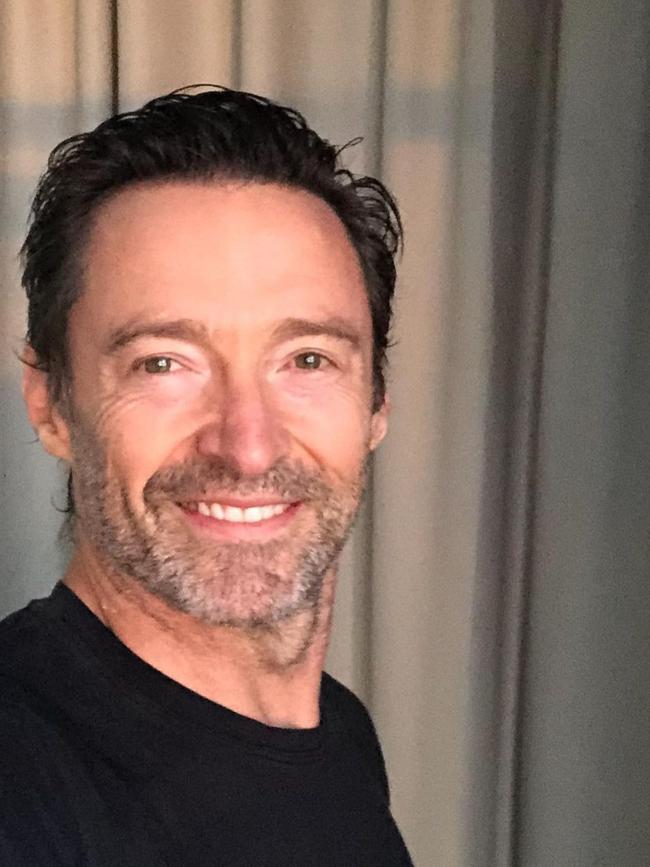
Here’s a breakdown of the reluctant groups — and some strategies which could sway them.
ADULTS AGED 50-69
The federal government’s daily tracker of vaccinations shows just 42 per cent of adults aged 50-54 have had one dose of vaccine, despite being eligible since early May. Other cohorts within the 50-69 age bracket are similarly sluggish. For those aged 70-74 the proportion is much higher: 73 per cent.
Advertising executive Dee Madigan suggested a positive message could be most effective for this group of Baby Boomers and Generation Xers.
“Choosing to get a vaccine is a purchasing decision,” she said. “So you can either use fear or a positive emotion about helping the community or getting your life back to normal.
“The 50-69 are close to the age where they are most vulnerable, so you could do a ‘protect your health’ message.”


Professor Peter Collignon from the ANU Medical School said this group were miscalculating the risks.
“If you’re aged 60 in Australia, your risk of dying if you get Covid-19 is roughly about one in 200. If you’re 50 it’s about one in 500,” he said.
“When we look at taking AstraZeneca, your risk of dying of that in Australia is about one in two million. If you’re 50 and taking aspirin, the death rate from that is about 1 in 100,000 every year, and we don’t give it a second thought.”
THE ‘WAITING FOR PFIZER’ CROWD
According to Professor van Laer, trust and motivation are the two compelling forces that prompt people to get vaccinated, and both factors come into play when dealing with the Pfizer holdouts
“We need to specifically increase trust into Astra Zeneca … and on top of that you can motivate people (especially in older age brackets ineligible for the Pfizer jab) if you say ‘If you get the AstraZeneca it means you can go to Queensland and lie on the beach next week, whereas with Pfizer you might have to wait until November,” he said. “That will convince quite a few people.”
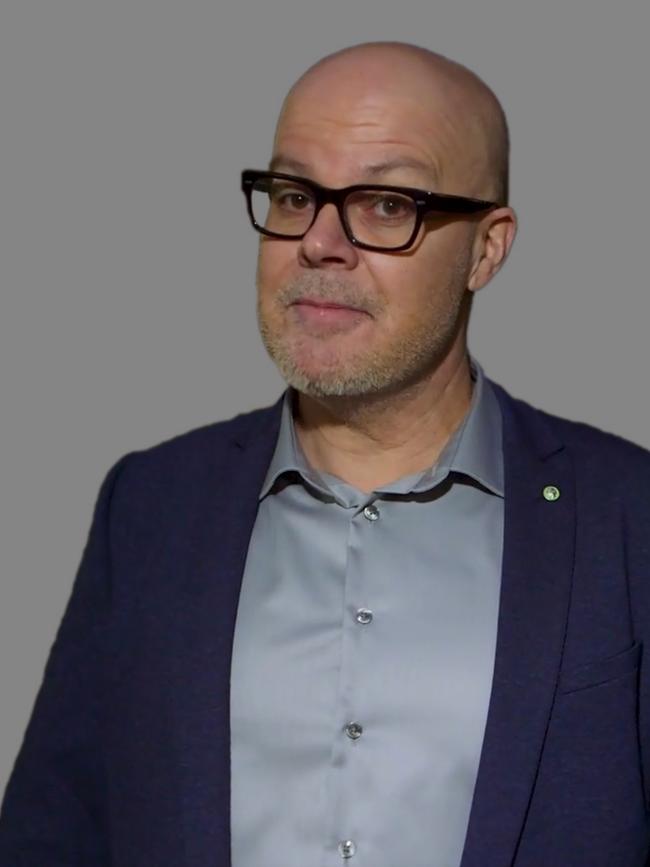
Melbourne University marketing lecturer Dr Brent Coker said recent moves to bring forward Pfizer deliveries meant this cohort were now unlikely to change their mind.
“These people aren’t that scared at the moment,” he said. “Because they know Pfizer is coming, they’re just biding their time.”
THE ‘WAITING TO SEE WHAT HAPPENS’ CROWD
Another group are wary about the speed with which the Covid-19 vaccines were developed and approved, and alarmed by reports of side effects.
“We haven’t really done a terribly effective job at explaining how great these new vaccines are,” Assoc Prof van Laer said. “If you compare them to anything humanity has created before, this stuff is pretty amazing. We use a new technology, sure, but this technology is actually a lot safer for you.”
The federal government’s first run of ads featuring former Deputy Chief Medical Officer Dr Nick Coatsworth were a missed opportunity, Assoc Prof van Laer said.
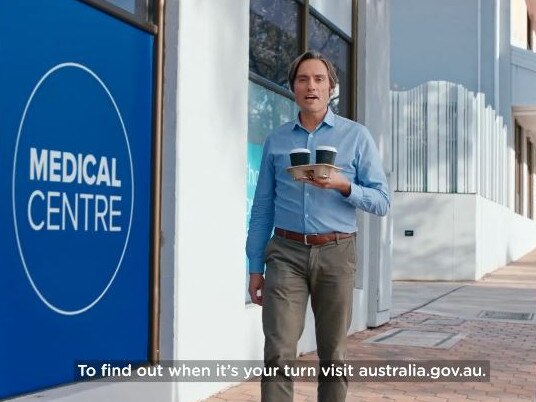
“In that original ad, [Dr Coatsworth] was buying coffee, and that’s a misuse of a really respected authority. An authority like that should be wearing his white coat and explain this is the best vaccine out there, and we should take it,” he said.
Dr Coker said the federal government’s ‘Arm Yourself’ campaign featuring plasters on people’s arms was a “rush job” and had “no effect at all”.
Another ad featuring a young woman struggling to breathe was typical of the shock approach taken by many public service announcements, but research into anti-smoking advertisements showed a positive approach worked better, he said.
A message of “If you give up smoking you’ll be so much more healthy” worked better than an ad saying “If you don’t give up smoking, these horrible things will happen,” Dr Coker said.
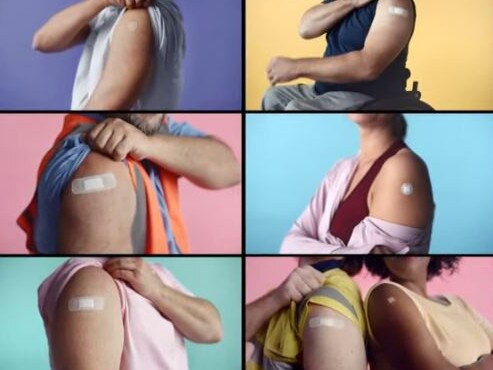
HARDCORE SCEPTICS/ANTI VAXXERS
Ms Madigan said it was a waste of time trying to persuade hardcore anti-vaxxers.
“Campaigns only ever target the persuadables, that is, the low-hanging fruit and the slightly higher-hanging but gettable ones,” she said. “You never bother targeting people you will never persuade. There is a myth that if you just tell them the facts you’ll get them on side.”
Assoc Prof van Laer said even former adherents to the anti-vax cause could not be deployed to convince anti-vaxxers, because such people become ostracised.
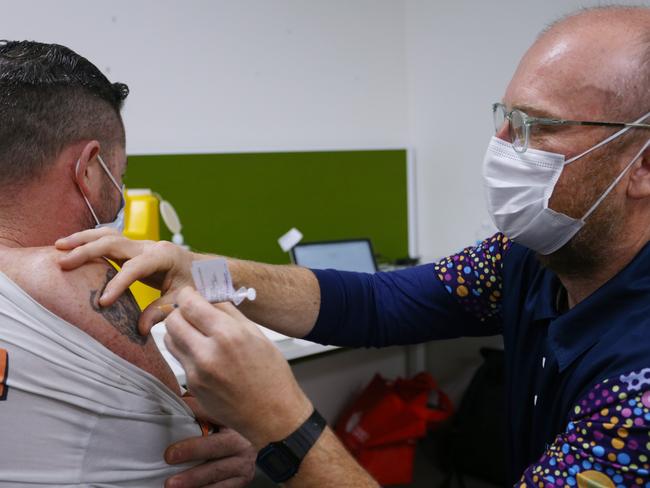
‘No jab no play’ policies could work but were short-term solutions, he warned.
“You create a different problem because there’s enormous resentment,” he said. “You get distrust. You get everybody vaccinated but there’s going to be another pandemic, or another moment when you want people to take a vaccine, so you don’t solve the problem, you just solve the symptoms.”
There was only one thing that sometimes jolted anti-vaxxers out of their strongly held beliefs, Assoc Prof Von Laer said.
“When things go really really wrong on the basis of their belief, then people snap out of it,” he said. “This is what you see around conspiracy theories, when people start losing their family or lose their jobs because of some conspiracy theory they subscribe to. In that case people tend to backtrack or change.”
More Coverage
Originally published as Covid vaccine rollout: Australia urged to use Ash Barty, Hugh Jackman to boost vaccination rate




